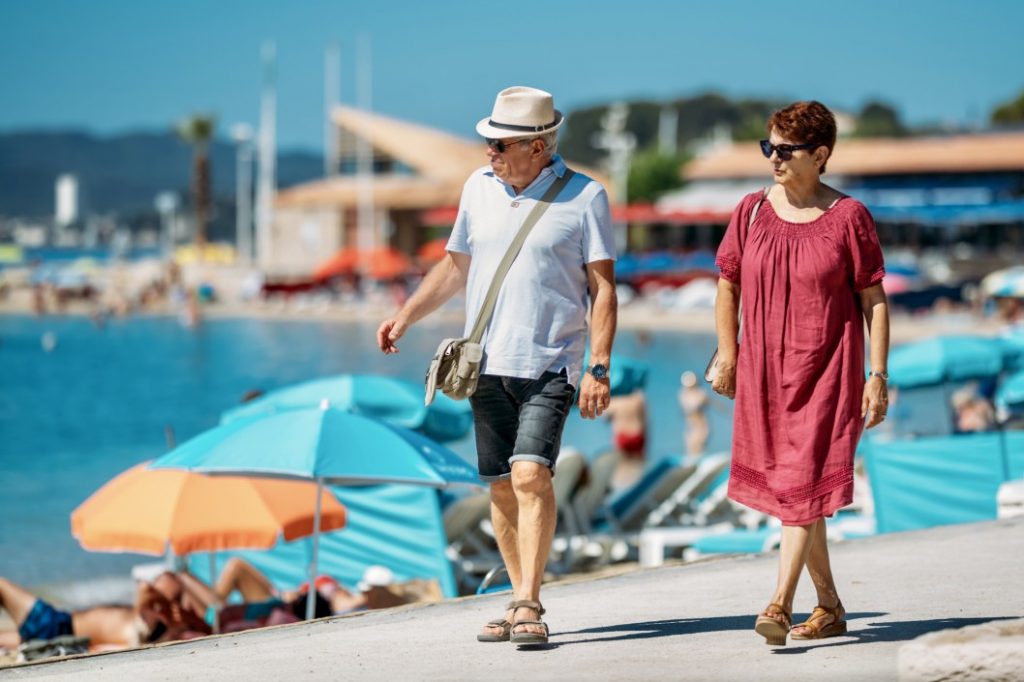Quarantine-free travel has been linked to Covid vaccinations, which younger Brits were put at the back of the queue for.
In May the UK government introduced its ‘traffic light’ system for residents returning from travel abroad. The idea was to strike a balance between restarting the travel industry and reducing the chance of importing Covid cases from abroad. Different restrictions would be imposed on different countries depending on their case and vaccine numbers. Now the government has come up with a new tweak which means that British residents will not have to quarantine on return from many more countries… but only if they are fully vaccinated (or under 18, as children can't get the jab in Britain).
There are good reasons to try and get the travel industry up and running again. And with the vast majority of at-risk Brits having now been vaccinated against Covid, and therefore having a negligible chance of getting seriously ill or dying from the virus, the financial and political costs of the government allowing people to travel and potentially catch the virus has gone down. That allows the financial and political costs of not allowing them to travel to loom larger.
Travel generates substantial wealth and provides many people around the world with their livelihood: in 2019, travel and tourism was responsible for 10 percent of all jobs worldwide and ten percent of global GDP (a measure of all the value created each year). Travel allows far-flung families to spend time together. It allows business to be conducted across borders. It can be a huge contributor to people’s wellbeing. It can also build human connections and tolerance by exposing people to other cultures and giving governments an economic incentive to care about other countries than their own.
The choice to keep the traffic light system but allow the vaccinated to circumnavigate it has been read by many as the government dangling the carrot of somewhat-normal holidays in order to encourage vaccine uptake amongst the jab-hesitant. That may work. But it has created a backlash from some younger adults, who point out that the only reason they haven’t yet been fully vaccinated is that the government put them at the bottom of the list for receiving it.
18-21 year olds were only invited for their first jab at the end of June. There is a twelve week wait between vaccines, and then a further two weeks need to pass before you’re considered fully vaccinated. That could mean quarantine-free holidays are off the table for members of this age cohort until mid-October. In contrast, all over-40s will have had the chance to complete their vaccination program by the end of July.
Unfair? Plenty think so. But others point out that life - and particularly life under a pandemic - isn’t fair, and sometimes sacrifices have to be made for the greater good. As a whole, British society has generally been in favour of prioritising public safety from Covid over many other things of value. And young adults aren't the only ones who have had to give things up. For example, Brits of all ages have lost jobs and had important medical treatments and diagnoses delayed, whilst kids have had huge disruptions to their education. Even with regards to travel there's been losers across the board. Five million (mostly older) Brits have just been informed they also can’t travel quarantine-free to Europe because the batch of Astrazeneca vaccine they received hasn’t been certified there.
However, one factor that has the potential to make the holiday debate particularly poisonous is how skewed by age both the impacts of coronavirus and the measures put in place to combat it have been. Younger people were both the least affected by the disease itself and the most affected by the lockdowns and other restrictions. They were more likely to wind up unemployed or face pay cuts, more likely to have paid full whack for a subpar university experience, more likely to have spent the pandemic in cramped inner-city accommodation without a decent setup for home working, more likely to have had large social groups and non-live-in partners whom they were barred from seeing for large chunks of the year, more likely to have experienced downgrades in their mental health, and more likely to have valued the sort of activities that were shut down by the pandemic, from nightclubs to gyms.
Given that, it’s perhaps not surprising that many may feel pretty miffed at being told to spend another summer in rainy Britain while the grandparents they were told to stay home to protect get to jet off to sunny Ibiza.
Read our explainer on: inequality and its economic impacts.

